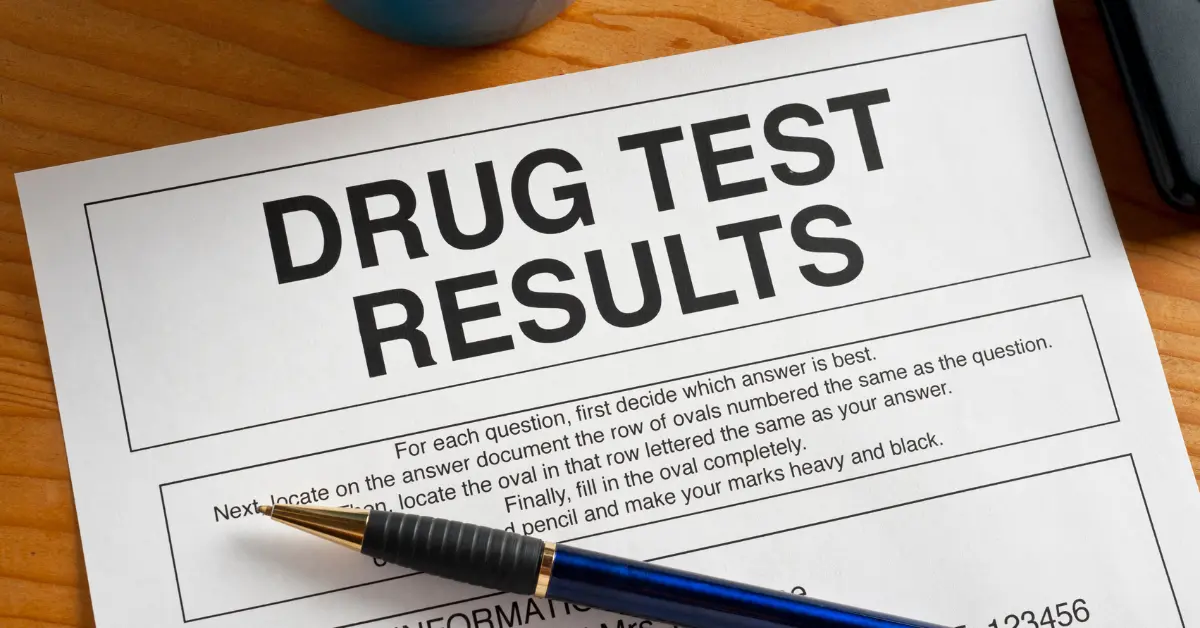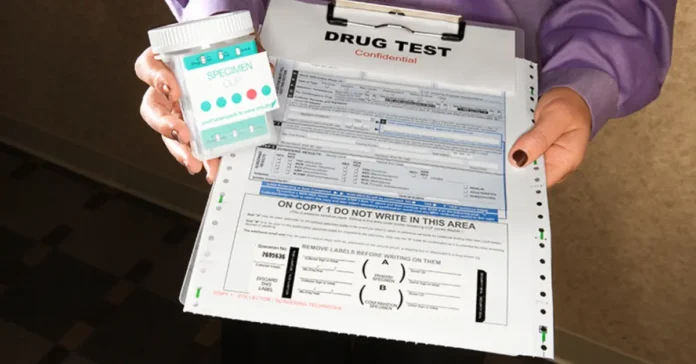The Challenge: Workplace Safety vs. Employee Privacy
Safe workplaces require a balanced drug testing policy that protects employee privacy. To protect employees’ rights, drug testing privacy laws differ by location and must be followed. Deterring substance misuse creates a secure and productive atmosphere, but it must be open and non-invasive to protect privacy. Organisations can build confidence and ensure safety by following clear guidelines, gaining consent, and restricting testing. This approach recognizes that workplace safety and employee privacy must coexist fairly.
Implementing drug testing processes requires careful consideration of employee privacy in company policies. Respecting employee privacy requires explicitly outlining the scope and purpose of any testing and complying with drug testing privacy laws. Testing should be balanced against potential privacy invasions, with employers communicating with employees about why and how testing is done. Before searching a company where to buy a drug test, informed consent, limiting testing to safety-sensitive roles or reasonable suspicion, and securely managing test results to ensure anonymity are important. Corporate rules can ensure legal compliance and employee trust by incorporating these ideas.
Establishing the Purpose of Your Drug Testing Policy
Workplace drug testing has three main purposes: it guarantees regulatory compliance, increases productivity, and helps to preserve safety. Clear goals help companies establish a safer workplace, especially in sectors where impaired performance can pose major hazards. By spotting and addressing substance use issues that can compromise an employee’s performance or team cooperation, drug testing also supports productivity. It also guarantees conformity to industry rules and standards, therefore lowering liability concerns. To support these objectives, employers often rely on reliable testing solutions such as 12 Panel Now, which provides comprehensive urine drug testing options capable of screening multiple substances in a single test while maintaining accuracy and ease of administration. By rigorously adhering to drug testing privacy laws—designed to safeguard personal data and prevent misuse of test results—it is important to strike a balance between these goals and respect for employees’ rights. Correctly aligning these objectives advances a more ethical and efficient workplace drug testing strategy.
Developing a good workplace drug testing policy depends mostly on the identification of high-risk occupations that can call for testing. Positions involving heavy machinery operation, transportation, or important decision-making where impairment could result in major safety concerns include roles involving. Once these roles are recognized, it becomes imperative to establish trust and compliance among staff using an equitable and open testing system. The justification, practices, and expectations surrounding drug testing should be very evident in this framework. To defend employee rights and safeguard sensitive information, employers must also consider drug testing privacy laws. Including these factors helps companies create a fair and balanced approach that gives safety top priority without sacrificing moral values.
Transparent Drug Testing Policy
Especially about workplace policies concerning drug testing, juggling safety and personal rights is a tricky chore. Particularly in safety-sensitive companies, employers routinely do drug testing to guarantee a safe and effective workplace. Drug testing privacy laws, however, which are intended to guard people against unfair intrusion into their personal lives, must be followed by these procedures. Ensuring that drug testing policies are consistently followed and grounded on reasonable concerns helps one to avoid discrimination during their execution. Maintaining this balance calls for openness, respect of pertinent legal rules, and a dedication to justice for every worker.
Implementation of regulations like drug testing significantly affects employee trust and workplace morale. Since employees are more likely to feel respected and appreciated when their rights are protected, upholding drug testing privacy laws is vital to sustaining this trust. Establishing a legal and ethical structure that gives justice and openness top priority would help employees feel more secure. Employee morale is raised, and a good corporate culture is reinforced when staff members believe drug testing policies are carried out legally, fairly, and with open communication.
Types of Drug Testing and Their Implications
- Pre-employment testing: Drug testing is a typical kind of these tests and can help keep workplaces safe and productive. Employers must be aware of drug testing privacy laws, which vary by jurisdiction and protect applicant rights. To perform pre-employment testing properly, organizations should tell candidates, gain their consent, and have certified professionals conduct secure, confidential testing. Legal compliance and industry best practices build trust and reduce legal risks.
- Random testing: This method can prevent substance addiction, identify concerns before they escalate, and improve workplace safety. The potential for misuse and employee rights issues make random testing controversial. Random testing must follow drug testing privacy laws to be fair and legal. These regulations protect employees’ privacy and dignity by forcing businesses to use accredited testing facilities and guarantee confidentiality. Organizations struggle to balance random testing benefits with employee rights.
- Post-accident testing: Employers must protect test findings, limit access to sensitive information, and get consent under these rules. Post-accident testing must also be non-discriminatory to avoid unfairly targeting personnel. For trust and compliance, the firm must strike a balance between investigating workplace problems and protecting employee rights.
- Reasonable suspicion testing: An employer initiates this type of testing when they detect specific, documented behaviors or symptoms of substance use that could affect workplace safety or performance. To ensure fairness, businesses should use clear, consistent criteria and train supervisors to recognize impairment indications and document observations. Following drug testing privacy laws protects employee rights by ensuring all procedures are secret, non-discriminatory, and legal. These measures improve workplace safety and protect individual rights.
Employee Consent and Protecting Privacy
Drug testing privacy rules protect employees’ personal information and ensure fair and transparent testing. They emphasize autonomy in decision-making by requiring explicit consent from participants in voluntary testing policies. Where consent is not optional, obligatory testing policies may be developed for industry laws or safety-sensitive professions. These approaches must be balanced while complying with drug testing privacy regulations to preserve legal and ethical standards.
Maintenance of trust and compliance with drug testing privacy laws requires employee secrecy during and after testing. Employers must strictly protect test results and personal data. This involves restricting access to sensitive data, securely storing information, and sharing results with authorized staff on a need-to-know basis. Clear communication on confidentiality and employee rights can also promote fairness and respect.
Handling Positive Test Results Ethically

Particularly in sensitive sectors like workplace drug testing, confirmatory testing is crucial in guaranteeing accuracy before making major choices. Confirmatory testing reduces the possibility of false positives that could develop during first screens by offering a secondary, more exact study. To protect people’s personal information and guarantee that tests are carried out ethically, drug testing privacy laws must be followed, which is why this process is so important. Following these rules and applying confirmatory testing techniques will help companies strike a balance between individual rights and privacy against the necessity of a safe workplace.
Under drug testing privacy regulations, which seek to guarantee fairness and openness all through the process, employee rights in the case of a positive drug test result are often safeguarded. Should an employee feel a false positive has happened, they are entitled to ask for confirmatory tests to validate the first finding. Clear paperwork explaining the appeals process should be given by companies so that staff members may contest findings using correct processes. These rules preserve compliance with accepted legal criteria while helping workers to avoid mistakes. Ensuring access to these rights not only builds ethical treatment of delicate issues like drug testing but also helps to strengthen confidence between companies and staff.
Fair and Effective Drug Testing Policy
Collaboration that respects organizational goals and employee rights is needed to create a fair and successful drug testing policy. Following drug testing privacy laws helps firms develop procedures that safeguard employee anonymity and promote workplace safety and productivity. Open dialogue and employee feedback during policy formulation can build confidence and openness, demonstrating that the purpose is to support employees rather than restrict them. Compliance with privacy laws and a partnership-focused strategy balance workplace safety and employee dignity.
Technology and employee rights will shape workplace drug testing. Testing methods may need to be reconsidered due to remote work and new employment models. Instant saliva tests and non-invasive screenings could become increasingly common because they are faster and less painful. Additionally, drug testing privacy laws will encourage corporations to be more transparent and equal. Employers must guarantee that future rules comply with legal standards and preserve employee privacy to create a positive and trustworthy workplace.



